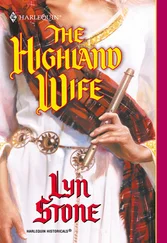He reconsidered, as if wary of a trap. ‘You’ll have to ask her. Too far back for me to remember.’
‘She didn’t take much interest in your work?’
‘I just said.’
‘Were you interested in hers?’
‘You’re starting to sound like that bloody counsellor we had to see when we was getting divorced.’
‘Fourteenth century English texts.’
‘Give me strength. What would I know about that?’
‘The poet Chaucer?’
‘Are you enjoying this? Because I’m not.’
‘But you know about building materials. Did Monica ever speak of a block of limestone that was said to come from Chaucer’s house in Somerset?’
‘Now I see where you’re going,’ Bernie said. ‘No, mate, leave me out of it. The first I heard about that thing was what I read in the paper after Gildersleeve was shot.’
Angry — she couldn’t disguise it — to be grounded, stuck in the CID room for the morning when a suspect was being interviewed not far away, Ingeborg was at her desk waiting for phone calls. They’d brought in the whiteboard and lots of photos and called it the incident room as if it was all action here, but who were they kidding? This remained the same old place where she spent far too much time sitting on her butt. After her undercover work, research on the phone was safe and boring. To say she was unhappy with Diamond was an understatement. For one thing she suspected he’d invented this task as a time-filler for her. He’d talked blithely about having a hunch. Jesus Christ, she thought, if she’d had the brass to mention a hunch, he’d have shot her down in flames. She’d heard him before going on about women’s intuition. And for another thing, she deserved to be in the front line after all she’d done.
In the last hour she’d put out feelers about the drawing of Thomas Chaucer and the former art dealers Matlock and Russell and now she was waiting for various journalist contacts to get back to her. John Leaman was with her, as smug as the cat who had finished the cream. She didn’t need reminding that he’d joined the boss on the outing to Reading.
‘Any joy?’ he asked. Not the best choice of words.
‘On the phone, you mean? No. I’m waiting for someone to call back.’
‘Is this just a red herring?’
‘We’ll find out, won’t we?’ she said.
‘He’s losing confidence,’ Leaman said. ‘He’s got three people firmly in the frame — Dr. Poke, Monica Gildersleeve and Bernie Wefers — and he hasn’t nailed one of them yet. The more he questions them, the more confused he gets.’
‘Is that why he’s having hunches, do you reckon?’
‘Desperation, isn’t it?’
She’d heard John Leaman in this vein before. There was always a point in an investigation when he rubbished all the theories. Normally, she wouldn’t have listened, but this morning his pessimism chimed in with her bolshie mood.
‘What about forensics?’ she said. ‘Won’t they come up with something?’
‘We won’t get much more from them. We know the gun that fired the fatal shot was probably a Webley, but we haven’t recovered it yet. The gunmen left no traces and they were all wearing balaclavas and rubber gloves. What does he think — that one of his prime suspects dressed up in a balaclava — or all three?’
‘There were two Webleys in Nathan’s collection. I saw them.’
‘Pity you didn’t bring them back with you.’
‘I couldn’t.’
‘Tough.’
Leaman seemed to regard that as the last word. Ingeborg had no desire to explain the difficulties of her mission to old misery guts, so they each returned to their computer screen and silence — until her phone beeped.
‘Inge? This is Klaus.’
Klaus Harting, one-time arts correspondent on the Daily Telegraph .
‘Good to speak again,’ Ingeborg said.
‘ Sergeant Smith, the switchboard said. So the change of job worked out for you.’
‘Most days, yes. How is it with you?’
‘The same. I’ve done some rooting around, without much success. Whoever was selling the drawing you mentioned — of Thomas Chaucer — went to some trouble to stay anonymous. I can tell you it was withdrawn from sale when the value plummeted because it wasn’t of Geoffrey Chaucer. The National Portrait Gallery were willing to buy it at a much reduced but not unreasonable price — Thomas being a significant man in the fifteenth century, if not quite a celebrity — but the seller refused to negotiate and the drawing hasn’t been heard of since.’
‘Waiting for a more favourable time to sell?’
‘Very likely. If it was billed as the main item in a new auction of historical portraits, it might do better. After the disappointment that it wasn’t the poet, there was the feeling it was second-rate.’
‘But it hasn’t come up for sale yet? Is it still with the original seller?’
‘The mystery man — or woman. I presume so.’
‘Did you find out any more about Matlock and Russell?’
‘The dealers. They ceased trading in two-thousand and five, I’m afraid. It was an old-established firm based in the West Country.’
‘Where I am,’ Ingeborg said.
‘The kingpin was a guy called Austen Chalk. When he died, the firm died with him.’
‘Where in the West Country?’
‘Bath. They had premises in Broad Street. It’s probably selling fish and chips these days.’
She was already on her feet. ‘I’ll find out. Klaus, you’re a star.’
Fish and chips? Unlikely. Broad Street specialised in antiques, crafts, upmarket homeware, fashion and, of course, public houses. The best thing about it this morning was that Ingeborg could walk there in five minutes.
Out of the police station and with a mission in mind, she felt better already. The sun was out, turning the paleness of the stonework a richer cream and giving the colourful shop fronts more pizzazz. Broad Street has no desire to compete with the formal elegance of its neighbour, Milsom Street. Not particularly broad except in style, it caters for the independent-minded, some of whom might not object to being called broads.
The shop once owned by Matlock and Russell had changed hands at least twice to Ingeborg’s knowledge and was now selling ethnic clothing, so she had no great hope that the present incumbents would know anyone who had worked there. But she knew of a gallery long established in Broad Street called Mary Cruz and decided to try there.
The assistant she spoke to had no memory of Matlock and Russell, but in the street outside someone tapped her on the shoulder and said, ‘Excuse me, I couldn’t help overhearing you in there. I take an interest in art and I remember the gallery you were asking about, long since gone, I’m afraid.’
‘I know,’ Ingeborg said. ‘That’s my problem.’
‘A Mr. Chalk managed it, but he died.’
‘So I heard.’
‘However, he had an assistant, who did all the paperwork, a Miss Brie. We used to call them Chalk and Cheese, for obvious reasons. That’s how I remember her name. She’s still living here. I’ve seen her about.’
‘Do you know where?’
‘Couldn’t tell you, I’m afraid.’
Rather than returning to Manvers Street to look up Miss Brie’s address, Ingeborg called in at the library. An assistant at a gallery must surely have had an interest in reading. If not, it was likely she would be on the electoral register, which they kept there.
The librarian didn’t need to consult the records. ‘We all know Miss Brie,’ she said with a faint smile. ‘She’s often in, a very observant lady.’
‘How do you mean?’
‘Whenever she returns a book, she supplies us with a handwritten report on it. She lets us know of any grammatical errors or spelling mistakes or unsuitable language. I don’t know what we’re supposed to do about it. Books are full of mistakes. If it isn’t the author’s fault, it’s the publisher’s or the printer’s. We’ve tried explaining, but she doesn’t give up.’
Читать дальше
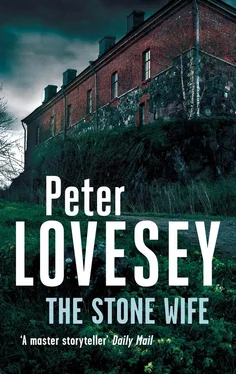
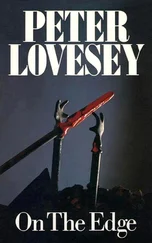
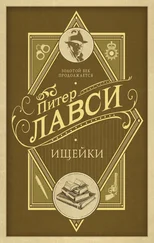
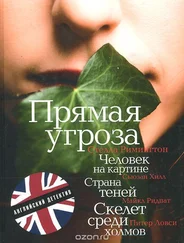



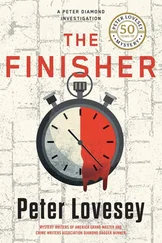
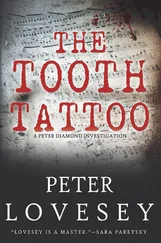
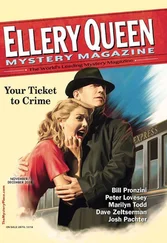
![Питер Ловси - Do Not Exceed the Stated Dose [Stories]](/books/437200/piter-lovsi-do-not-exceed-the-stated-dose-stories-thumb.webp)
